The rise of apocalyptic novels
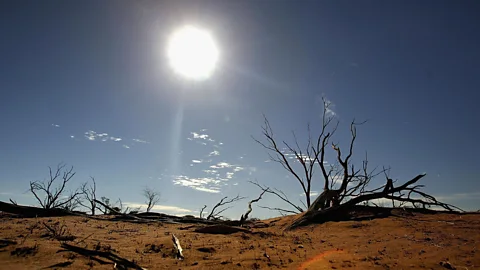
In our times of uncertainty, the latest fiction about climate disaster is unsettling – but also strangely comforting. Hephzibah Anderson speaks to the authors.
Imagine you're enjoying much-needed time away with your family, staying in a luxurious Long Island holiday rental, miles from anywhere. Then comes a late-night knock at the door and strangers bearing news of a sinister power outage in New York City. The internet has gone down, phone service has been severed, and when you switch on the TV, every channel shows the same blank screen. Your children are asleep down the hallway, and you've no way of knowing what's going on, or even whether these people are telling the truth.
More like this:
Hooked? You wouldn't be alone. It's the premise of Leave the World Behind by Rumaan Alam, a propulsive, penetrating new novel about race, class, and climate change. Because while the true nature of what's going on remains obscure – could it be a terrorist attack, the actions of a rogue state? – clues scattered throughout hint heavily at a climate event. Not only did this profoundly unsettling novel make the shortlist of the US National Book Award, it's also become a bestseller.
Comfort has been at a during the current pandemic, and it hasn't always come from expected sources. Never mind cosy home-baking and box sets: readers have turned not just to beloved classics but also to the often-dystopian genre known as cli-fi – novels in which environmental devastation is a driving force, catapulting protagonists into an apocalyptic "after" or else pinning them in the fast-vanishing "before", with disaster bearing down, inaction endemic and anxiety soaring.
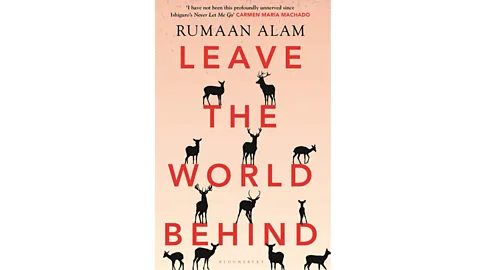 Bloomsbury
BloomsburyShort for climate fiction, cli-fi is a relatively new term for a trend whose long roots extend back to sci-fi. Think JG Ballard's The Drowned World or Ursula K Le Guin's The Lathe of Heaven, both written at a point in history when frequent wildfires and regular flash floods belonged to the realm of the speculative. In the past couple of decades, contributions from titans of literary fiction, including Margaret Atwood and Cormac McCarthy, have brought cli-fi into mainstream storytelling. Worsening scientific projections are keeping it there.
In 2020 alone, Diane Cook snagged a place on the Booker Prize shortlist with her debut, The New Wilderness, about a mother and daughter trying to survive as nomads in one of the last remaining wild landscapes; Jenny Offill's Weather dramatises the tension between quotidian chores and global doom; and in Carys Bray's When the Lights Go Out, a marriage is pushed to breaking point by divergent responses to looming ecological calamity. This trend isn't about to lose momentum anytime soon, either – novels poised for release in the coming months include Rosa Rankin-Gee’s Dreamland, depicting Britain in 20 years' time, a place of rising sea levels and populist tides.
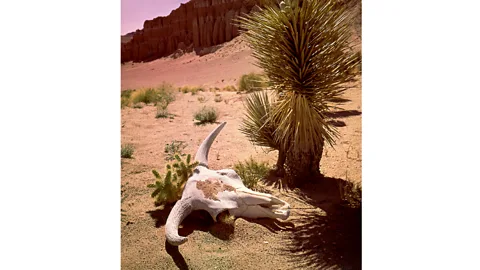 Getty Images
Getty ImagesIt might seem masochistic to turn just now to tales of havoc and wrenching loss, yet these cautionary narratives also offer catharsis, a degree of hope, sometimes humour. In times of intense worry and rampant uncertainty, they almost seem to hold out the promise of a how-to manual – how to handle crisis, how to deal with calamity, how to simply muddle through.
The present moment is of course one that the authors of recently published books could not have anticipated. When Brooklyn-based Alam sat down to write Leave the World Behind in 2018, he knew he wanted to write about climate change, and felt pleased to have come up with a metaphor that made it harder to turn away from: six people trapped inside a house, neatly reflecting our relationship to the planet. Then came Covid-19 lockdown measures to literalise his metaphor. "This is the funny thing about any kind of art – whatever your intentions are for it are immaterial, because it belongs to the reader, and then the cultural context changes," the novelist tells BBC Culture. "I think there's been an interest in looking at the book so that it seems to reflect back at people the experience of life right now, of feeling uncertain about your relationship to information and feeling trapped inside of a domestic space."
That uncertainty is never entirely resolved, the novel being a disaster story in which the disaster is never fully explained; much as that mystery may irk some readers, for others it will stoke the novel's potent menace. Earlier drafts were still more elliptical, until Alam's editor pressed him to explain, for instance, the nature of a series of almighty bangs ("Noise was an insufficient noun," he writes) that crack glass and leave people undone. "I had a noise but I had no idea where it came from," he its. His solution? "I was watching Murder, She Wrote and Jessica Fletcher is always hopping on the Concorde in the later seasons, and I was like, oh, the Concorde, the noise could be related to a supersonic plane. I was just making it up." He goes on: "That's one of the gifts of writing any kind of fiction, but especially this kind of fiction: it doesn't have to make any sense."
Where the novel absolutely does have to make sense is in of its characters' emotional responses. Leave the World Behind is a rewardingly complex narrative, but at its most elementary, it's about how to cope – or not – with panic, and its adult characters respond in ways that, if we're being candid, are all too relatable. "In writing fiction, the only thing I have access to is my own psyche, right? So in a way the thing just becomes an indictment of myself," he says. An indictment because none of the adults react in ways they'd have hoped. They take solace in stockpiled food and cash, and in having a gun; they do not stop to help distraught strangers.
With all the information that washes over us, Alam doesn't believe we're in need of a wake-up call to save the world – nor that it's necessarily the function of art to provide such a klaxon. Instead, he intends his book to shake the reader's sense of who they are. "If nothing else, I hope it makes you feel slightly uncomfortable with your own sense of how heroic and good you might actually be. It's not asking the reader to change who they are, but to confront who they are." In this way, he says, novels like his perform that most essential role of storytelling: "They show us that we are not alone. Even at our least heroic."
Stronger together
Climate fiction feels less and less like fantasy, its fever-dream visions increasingly begging questions not of "if" but "when". Even so, it wouldn't be entirely prudent to look to its pages for practical tips on how to survive an apocalypse. Not that they aren't there. Lie low until the initial mayhem subsides. Follow the animals for safe drinking water. Always be ready to run.
As a child, Rankin-Gee took dystopian novels very seriously. "As soon as I read Z for Zachariah, I packed my Karrimor backpack with odd tins of food, spare underwear and some rope. I was ready to go at any minute," she recalls. Her own novel, Dreamland, which will be published in April, stars Chance, a heroine born just four years from now. Sea levels are rising, but it's also hotter. "That's the scary part," she tells BBC Culture. "Many elements of my future in Dreamland are not future at all – they are things that have already happened."
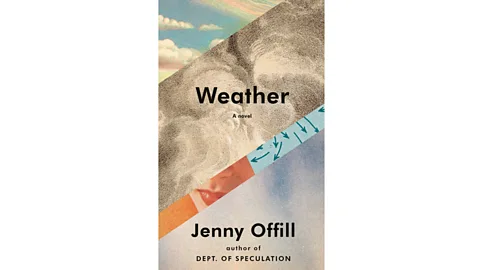 Granta
GrantaPlenty of cli-fi novels, she notes, jump-cut to the moment after the catastrophe has occurred, giving protagonists the benefit of hindsight. "I wanted to write the 'during'. The characters are not nostalgists, they don't have a great deal to romanticise. At the same time, they're not bleak or despondent – they're just continuing to live with what they're faced with."
Though quick to point out that this isn't a book intended to yield clues on how to survive, Rankin-Gee believes that "in the writing and reading there can be a stoic working through of things. And that sense we look for in all books, film, art – connection, that we are not alone." It's one of the recurring themes of cli-fi: not only are we not alone, we're vastly stronger together. Even with zombies and monster rats on the rampage.
Being together is not the same as feeling together, however. When the Lights Go Out by award-winning British author Carys Bray is set neither after nor during but before. Inspired by local flooding and concerns about fracking in her native Lancashire, it's the story of Chris and Emma. Chris is an archetypal doomer, stockpiling antibiotics and bent on breeding rabbits for food; Emma is just trying to get their family ready for Christmas.
"While I'm not as consistently patient or pragmatic, I mostly align with her approach," Bray says of her heroine. For both character and creator, gardening is a great balm. "I've got chillies, lemons and tomatoes growing in my office right now," she says, adding that for practical help in saving the planet, she turns to nonfiction like Dave Goulson's The Garden Jungle. "I'm fully aware of the insignificance of my individual efforts, but I'm also hopeful that collective change is possible," she adds.
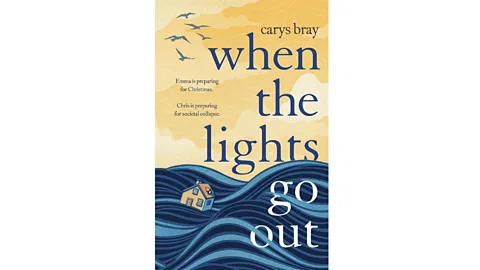 Hutchinson
HutchinsonIn Offill's Weather, a sublime blend of hilarity, warmth and existential despair that's far more entertaining than it has any right to be, given its subject matter, protagonist Lizzie is buckling as she tries to fulfil the roles of both Chris and Emma, prepper and pragmatist. It's what Offill describes as a "pre-apocalyptic" novel. "I wanted to write about how disorienting it is to live now when you are thinking about buying tin foil one minute and about flooded cities the next," she explains. She more than succeeds and yet there's a sustaining thread of optimism. As she puts it, "By the end of the novel Lizzie is starting to understand that she should not live alone in her silo of dread. The movement from individual action to collective is an important one, I think." It also leaves the reader feeling less lonely by the end.
There is a necessary limit to the succour that cli-fi can offer. While it shows us that even in the midst of a global pandemic, things could always be much worse, the problem is that our being distracted from it hasn't made looming environmental collapse go away. For Rankin-Gee, there's a worry that a genre that eyes humanity's extinction risks "normalising" climate breakdown, painting pictures so bleak that we're left with an unintended – and wholly false – sense of reassurance. "Then I the climate deniers, and the fact that a basic normalisation is still a crucial part of confronting the problem," she says.
Optimism is a different matter. As Alam insists, "I have to find optimism, you've no choice but to go on." He finds it in the next generation, in the ability of children to see with clarity rather than turning away, to act decisively rather than pretend that buying the recycled coffee filters will have an impact. That same belief in the future is embedded in his novel, a book that – like so many other excellent examples of not only this genre, but of literature in general – reminds us of something else, just as vital to survival: there is always a place for art, no matter how grave the crisis.
Love books? BBC Culture Book Club on Facebook, a community for literature fanatics all over the world.
If you would like to comment on this story or anything else you have seen on BBC Culture, head over to our Facebook page or message us on Twitter.
And if you liked this story, sign up for the weekly bbc.com features newsletter, called The Essential List. A handpicked selection of stories from BBC Future, Culture, Worklife and Travel, delivered to your inbox every Friday.
